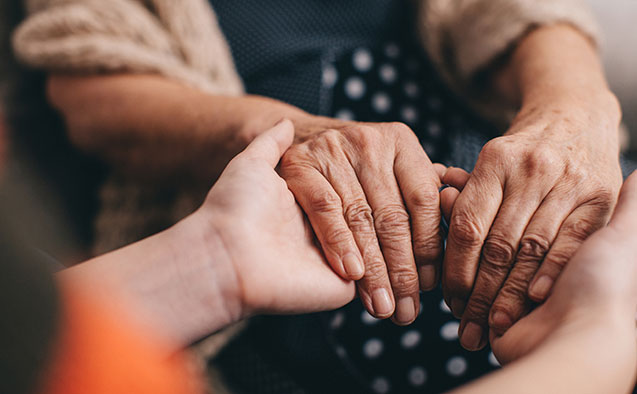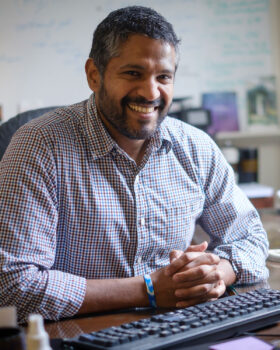When facing difficult life experiences, study shows coping strategies matter
Wake Forest students co-author study about COVID-19 research

As more research becomes available about the impacts of the COVID-19 pandemic on people’s lives, a new study shows the well-being benefits for older adults who approach challenging experiences positively.
The findings are part of a study co-authored by Wake Forest University undergraduate students and psychology professor Eranda Jayawickreme.

Eranda Jayawickreme
Their work takes a deeper look at how younger and older adults processed difficult life experiences and stress during the pandemic. The research took place from fall 2021 through spring 2022.
Both groups (ages 17-22 and ages 55-83) filled out online surveys and were asked to write narrative responses describing their most impactful COVID-19 experiences. One being a positive event from the pandemic and one being a negative event from the pandemic.
Those stories were scored based on their use of exploratory and redemptive thinking. Exploratory involves thinking through one’s experiences and finding lessons and insights, as well as opportunities for growth. Redemptive involves looking at the silver lining in the life event. This can provide a sense of closure and resolution.
“We found that redemptive processing of impactful events related to the COVID-19 pandemic predicted higher levels of well-being among older adults,” said Eranda Jayawickreme, Wake Forest Harold W. Tribble Professor of Psychology. “In other words, when older people changed their initial negative emotional experience of COVID-related life events into a positive emotional experience, they reported higher levels of well-being.”
An example of this is that even though there were times of not being able to go out much or isolation during the pandemic, some older adults reported having an opportunity to spend more time with their grandchildren or talk with them more using technology, which made them happy.
According to Jayawickreme, the study raises more questions and calls for research on the topic, especially among this age group.
“I think there are two main implications of this project. One is that for older people, coping strategies that center on acceptance and reframing (rather than actively engaging and changing the environment) may be particularly helpful. Second, we need to learn more about the experience of younger people through the different waves of the COVID pandemic. While it was clear that COVID presented a constant threat to older populations, the experience was likely different for youth,” said Jayawickreme.
The study titled: “Redemptive processing of impactful COVID-19 experiences predicts well-being among older but not younger adults” was recently published in the online research journal Social and Personality Psychology Compass.
Most of the data collection was led and analyzed by undergraduate students who worked one-on-one with Jaywickreme.
Undergraduate researchers at work
The idea for the study came from Amber Adkins Thro (’22), who began the process as part of her senior thesis project. At the end of her junior year, most of her classes at Wake were being taught online. She always enjoyed working and volunteering with older adults and as a recipient of the Stamps Scholarship, she was able to work with the scholarship committee to use some of her funds for recruiting.
Thro points out that their research found some surprises in the data results. Their original hypothesis predicted that for the college-age group, exploratory processing (the ability to gain lessons from their experiences) would lead to higher levels of well-being for younger adults. But that wasn’t the case.
“There’s a lot of research about the COVID-19 pandemic, and knowing that we contributed to that is a great feeling,” she said. I recruited the students to score our materials and trained them. I was pointed in the right direction and then had a lot of freedom to experiment and figure out what was needed. I’m grateful for this experience I was able to have as an undergraduate.”
Categories: Research, Top Stories
Wake Forest News
336.758.5237
media@wfu.edu
Meet the News Team
Headlines
Wake Forest in the News
Wake Forest regularly appears in media outlets around the world.




